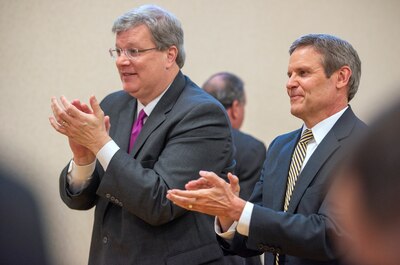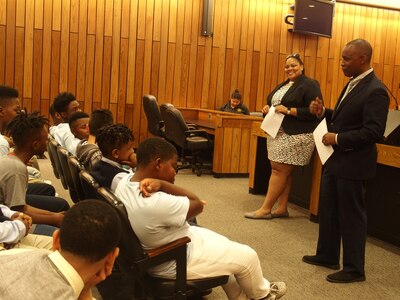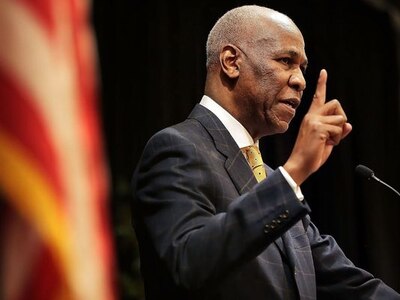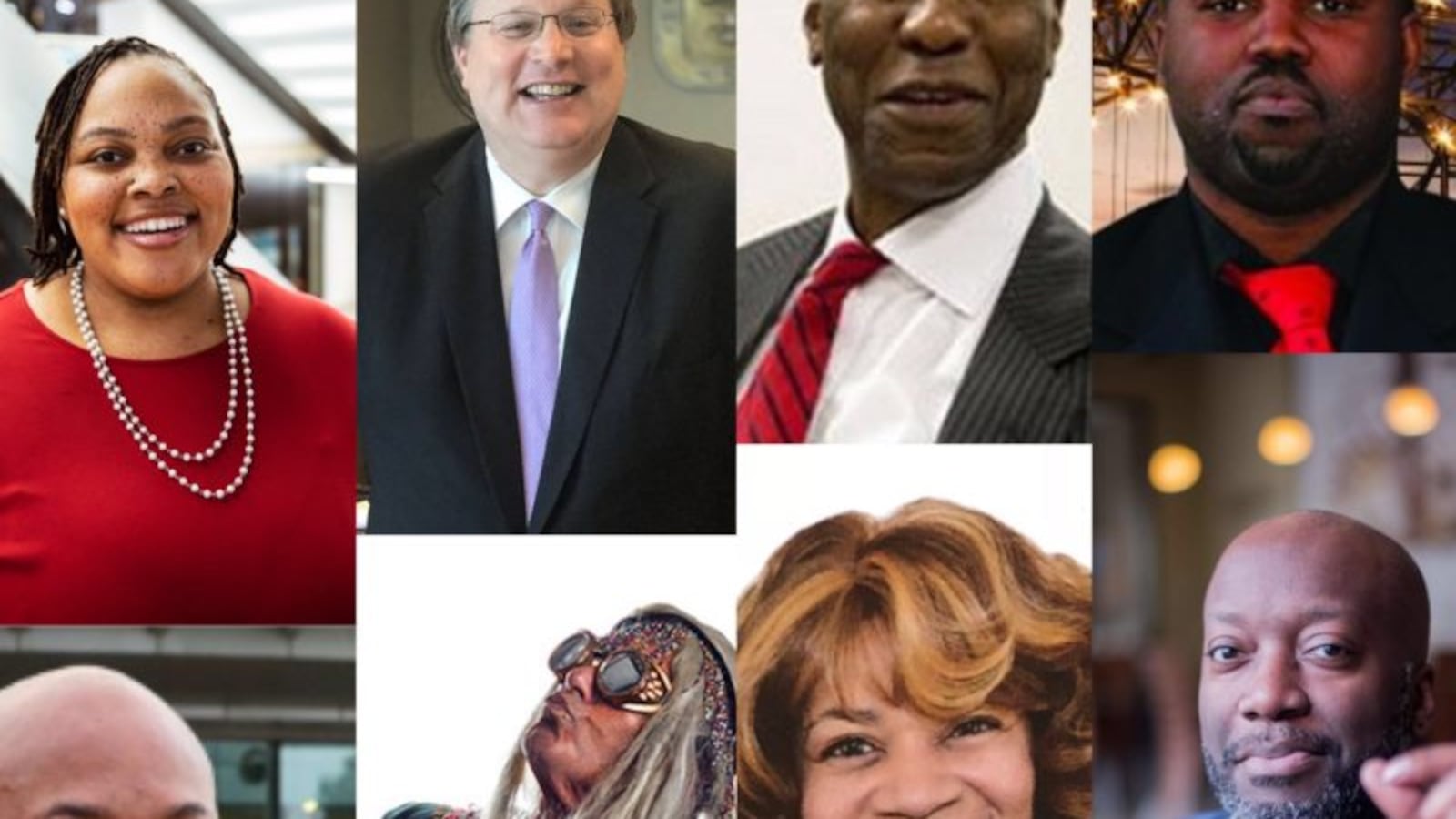Pressure has been mounting for the City of Memphis to directly fund education again after a seven-year hiatus — and at least four candidates for mayor say they would if elected.
Chalkbeat surveyed the 11 mayoral candidates to give voters a better sense of their education agendas. We heard back from six: Terrence Boyce, Robert “Prince Mongo” Hodges, Tami Sawyer, incumbent Jim Strickland, David Walker, and Lemichael Wilson.
Boyce, Hodges, Sawyer, and Walker all told Chalkbeat they would want city government to chip in to Memphis classrooms, though they had widely varying ideas about how to do that and only one would commit the city to a specific level of annual funding.

The city had always played a substantial role in funding local schools until 2008, when the City Council — led in part by current mayor Jim Strickland — voted to slash school funding. Since the 2013 merger of the Memphis City and Shelby County districts, city leaders have contended they are not responsible for funding education at all, and there is currently no dedicated stream of funding from the city to Shelby County Schools, which educates most Memphis students.
(The city does pay the district $1.3 million a year to comply with a court order that resulted from the City Council decision. It has also budgeted $6 million this year to expand access to pre-kindergarten.)
Memphis advocacy groups and county and district leaders have been pressuring the city to pump money back into education for several years. A former county commission chairman in 2016 compared the city to a “deadbeat parent” for not contributing to the district. And earlier this year, Superintendent Joris Ray vowed to advocate for city funding.
That makes school funding one of the top education issues facing the next mayor. At least four contenders say they have a plan to revive the city’s contribution.
“We are a part of Shelby County, thus all cities [in the county] should play a role in funding public education,” Boyce said in his answer to Chalkbeat’s survey. “I would ask that each city be responsible for a percentage, based on the population of that city.”

Sawyer, one of the top fundraisers in the race, said she would start a competitive grant program accepting applications from students, teachers, schools, community groups, or the district. She would focus grant awards on initiatives that would address childhood trauma, reduce disproportionate discipline toward students of color, support students outside of school, and expand mentoring or apprenticeship programs.
Walker said the city should allocate a portion of commercial property taxes from new developments to education.
And Hodges said he would create a city-funded mentorship program that recruits business leaders to teach life skills to students.

Notably missing from the survey respondents was Willie Herenton, who has the most experience in education out of all the candidates. Herenton rose through the ranks in Memphis schools to become the first black superintendent in 1979 and later became the city’s first black elected mayor in 1991. He also started a network of six charter schools in 2013 but all except one have closed because of poor academic performance or low enrollment.
We also asked candidates about how they see the city’s role in pre-kindergarten continuing, if they would contribute toward facilities projects in school buildings the city owns, and what they see as the biggest challenges and opportunities in education.
Below, you can sort through candidates’ answers. The deadline to register to vote is Tuesday, Sept. 3. Early voting starts Friday, Sept. 13 and ends Saturday, Sept. 28. Election Day is Thursday, Oct. 3.
The following candidates did not respond to our survey: Herenton, DeAngelo Pegues, Leo Awgowhat, Steven Bradley, and Sharon Webb. We have included basic information about them where possible.

